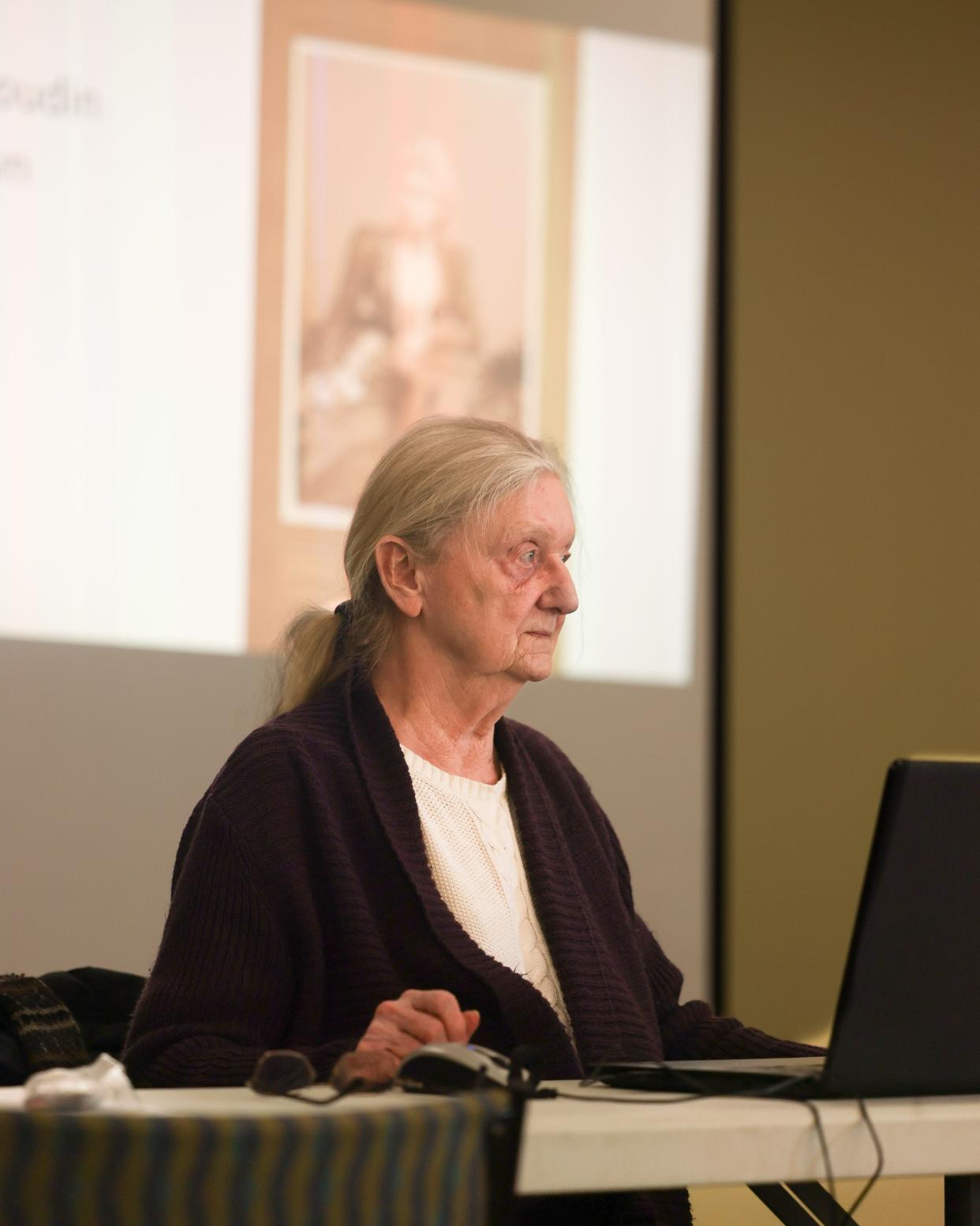Harriet and Frederick Loudin were 19-century 'power couple' in Portage County

Harriet Loudin was the "brains" behind a world-famous singing group with Portage County ties.
She was married to Frederick Loudin, a Portage County native who spent six years touring with the Fisk Jubilee Singers in the 1800s.
Together, they were a "19th-century power couple," who became rich as the singing group toured the world, entertaining heads of state, according to Christina McVay, an author and teacher of English and Pan-African literature at Kent State University.
McVay spoke about the life of educator and suffragist Harriet Loudin and her husband during the annual Winter Writing Festival, which returned to Ravenna on Saturday for the first time since 2020.
"He was the most famous person to come out of Ravenna that nobody's ever heard of," McVay said of Frederick Loudin.
More:Encouraging words: Writing festival a hit with Ravenna merchants
Black history, poetry and fiction writing were just some of the topics covered in Saturday's festival.
The event, sponsored by Main Street Ravenna, took place in various venues throughout the city.
After student winners of an essay contest were recognized, participants heard from the keynote speaker, David Giffels, then spread out to workshops in various locations. Giffels, a local author and former columnist at the Akron Beacon Journal, gave a presentation titled "How to Write When You Think You Have No Ideas."
A marriage of convenience
Harriet Johnson grew up in the 8th ward of Philadelphia, which was the heart of the 19th century Black community and the abolitionist movement. She was born in 1846, which was a "turning point" in the civil rights movement, and attended The Institute of Colored Youth," which was "widely regarded as the model school for Black education."
"A constant stream of Black intellectuals" visited the school, McVay said.
After graduation, Henry Highland Garnet, the new president of Avery College in Pittsburgh, invited Harriet to teach there. Frederick Loudin also was at the Pittsburgh college, teaching music.
McVay said she believes the Loudins enjoyed a "marriage of convenience," with each getting something from the arrangement.
They had no children, McVay said. "I don't think they ever had sex."
"When they met in Pittsburgh, I think he was impressed by her connections," McVay said. "And Harriet wanted to travel the world, and he was her ticket."
McVay said Harriet Loudin was 10 years younger than her husband. Letters surfaced that stated Loudin treated his wife poorly and had an affair with one of the women in the singing group, but his wife made no mention of that in her diary.
McVay said other letters indicated that after the female singer was sent home when news of the affair surfaced, Frederick Loudin continued to write about finding "genial company" in the places where he traveled and asked about a specific woman.
Who were the Fisk Jubilee Singers?
The Fisk Jubilee Singers were founded by a group of students who came together to form a singing group in order to save the struggling school for Black students in Nashville. After a few years of touring the country singing spirituals, Frederick Loudin was invited to join the group. His wife added her administrative talents to the group, reserving venues for concerts and handling the money.
"She was the brains, and he was the talent," McVay said.
Frederick Loudin was known for his deep, commanding singing voice, and also was an orator, speaking out about civil rights issues, such as the singers not being able to find hotel accommodations in American cities despite being welcomed in Europe.
The singers returned to their homes after a six year world tour wealthy. The Loudins owned property in Washington, DC and Columbus, but decided to settle in Ravenna, where they built a home at Walnut and Riddle streets that they named Otira. The home was filled with treasures they obtained from their world travels, and the woodwork came from exotic woods imported from around the world.
The house is still standing, but has been divided into apartments.
Frederick Loudin continued to travel and perform.
"He couldn't have done it without Harriet working in the background," McVay said.
In 1902, Frederick Loudin collapsed while touring Scotland and returned to Ravenna, where he died two years later. His wife died in 1907. The couple is buried in Maple Grove Cemetery in Ravenna. Frederick Loudin was posthumously inducted into the Ravenna Schools Hall of Fame.
Festival returns
Arasin Hughes, executive director of Main Street Ravenna, said the Winter Writing Festival, which was started in 2019, switched to a virtual format in 2021 and didn't take place last year.
She said she heard "a lot of positive feedback" and suggestions about things to include in future events, including putting more focus on youth.
"We're hoping it will grow from here," she said.
Reporter Diane Smith can be reached at 330-298-1139 or dsmith@recordpub.com.
This article originally appeared on Record-Courier: Ravenna Winter Writing Festival focuses on poetry, Black history, more

